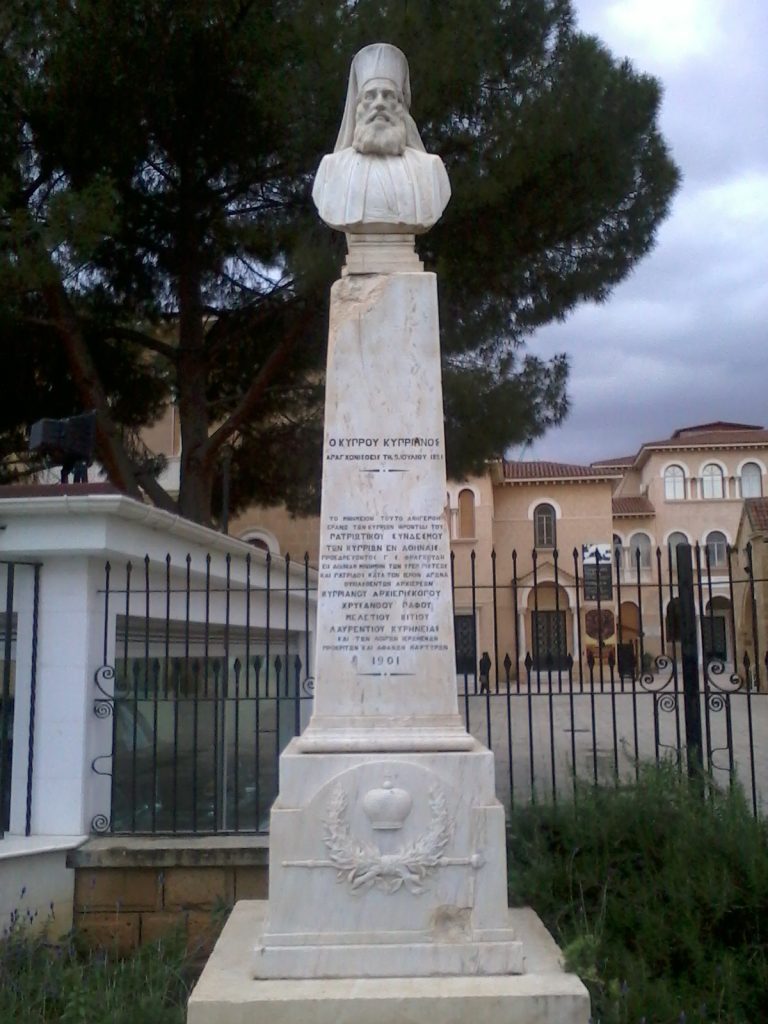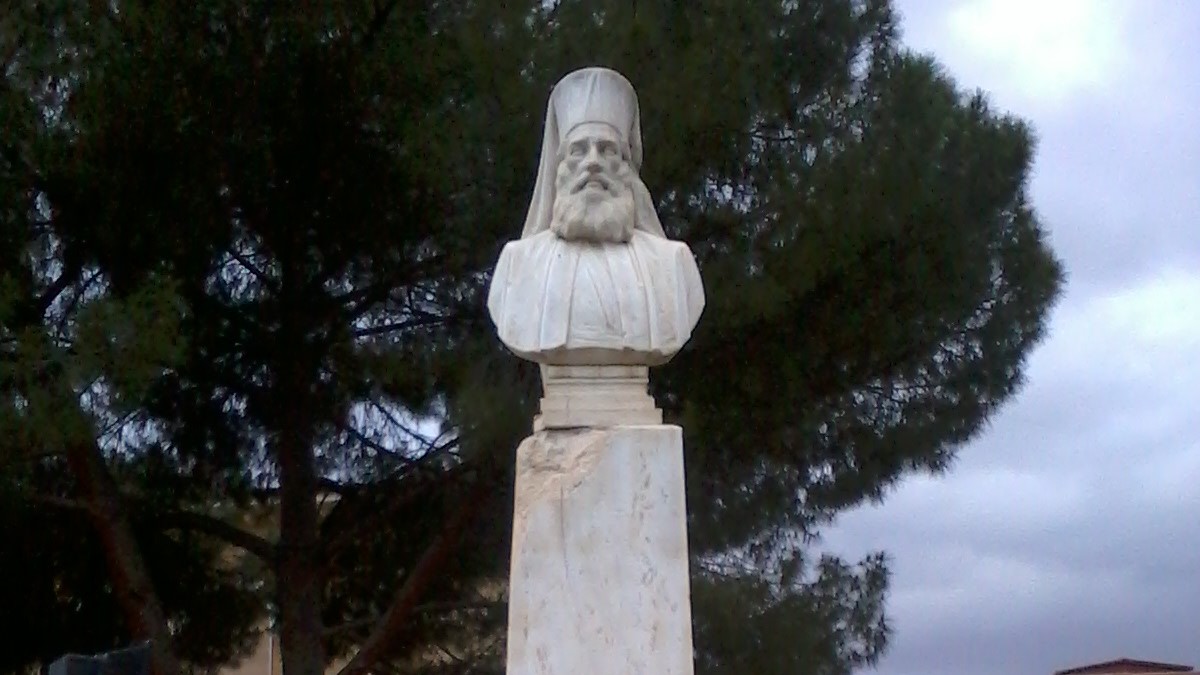Cyprus’ role in the 1821 Greek Revolution is an integral part of the rebirth of the Hellenic peoples.
In 1821, most of the Eastern Mediterranean was under Ottoman occupation, a people who had left their central Asian homeland more than five centuries earlier.
The story of the gathering of Philhellenes throughout the world is well documented.
1821 Cyprus was also under Ottoman occupation. With foreign troops and administrators ruling the island, Cyprus was considered just another “tax farm” – a place to use and exploit.
From the first day of the declaration of liberation March 25, 1821, Ottoman occupying forces and their supporters throughout all the occupied lands led a campaign to terrorise the occupied peoples and quell the rebellion. Cyprus was no exception.
As early as October 1818, Archbishop Kyprianos of Cyprus had met with the Filiki Eteria.
Shortly after March 25, 1821, the Ottoman governor of Cyprus sent to the Sultan a list of leading Greek Cypriots including Archbishop Kyprianos, three other bishops and the abbots of all the monasteries of Cyprus, accusing them of “treason.”
In response, the Sultan sent 4,000 troops from Syria and ordered all Greek Cypriots to be disarmed. Although Archbishop Kyprianos issued a letter to his compatriots to submit to the decree, within days began the “terror” led by the arbitrary murder of Greeks.

By early July 1821, Sultan “formally” ordered the murder of Greeks, witnessed and recorded in detail by the European consuls in Cyprus who went as far as offering asylum to Archbishop Kyprianos, which he declined. On July 9, they hung Archbishop Kyprianos outside the governor’s palace. He told the executor ‘Execute the command of your cruel master’.”
They hung Kyprianos’ secretary, three other bishops of Cyprus (Chrysanthos of Paphos, Meletios of Kition and Lavrentios of Kyrenia) all executed. Hundreds of Greek Cypriots were executed, most of them from wealthy and influential families, their property stolen by the governor.
Ironically the cruelty of the occupiers did the opposite, it was a call to arms.
Greeks from Cyprus raised the “Greek Flag of the Homeland Cyprus” and volunteers found their way to the front line in the Peloponnese and beyond.
Mesologgi has a monument for the Cypriot dead fighters which died fighting in their attempt to break the siege and exit the town. Cypriots also fought to liberate Lebanon which at the time was also under Ottoman occupation.
Back in Cyprus, in March 1826, Greek Revolutionaries, together with Cypriots, attacked the Turkish Guard and the Turkish Military Department of the Famagusta Guard at Aghia Napa.
In 1826, Cypriot fighters adopted the Cypriot military flag, white in colour with a big blue cross in the centre, to join the “Ionian Phalange,” who took part in many military operations in the Peloponnese and Mainland Greece until its dissolution in 1827.
Ionian Phalange saw action in the Eastern Aegean and took part in the battles against Kioutahis who sieged the Acropolis of Athens between 1826-1827 where more than 100 Cypriots were killed in the battles in Athens and Phaliro. The Ionian Phalange liberated Chios and Hydra amongst other parts of Greece.
1821 is more than a historic moment, it’s a recognition that human dignity and freedom has a price and the people of Cyprus paid that price. Some are still waiting for the modern day liberation of the island and the unification of its people.



